Breast Reconstruction in Malaysia
Search and Compare the Best Clinics and Doctors at the Lowest Prices for Breast Reconstruction in Malaysia

Find the best clinics for Breast Reconstruction in Malaysia
No pricing info available
India offers the best prices Worldwide
Price: $ 477
From 7 verified reviews
Suhaimi Bakar, 27 September 2020
High level of professionalism attitude by all staff towards customer satisfaction make myself feel like home during difficult times.
From 90 verified reviews
Faaiqah Jais, 17 September 2020
Their foods very delicious, both patients and LG cafe, during my admission. The staffs also very friendly, very recomended.
From 91 verified reviews
Zainuddin D, 07 September 2020
Great private sepcialist hospital
From 139 verified reviews
Koh Chun, 11 January 2022
All the staff is excellent, they are professional and caring.
From 132 verified reviews
Derf B. Sibal, 19 September 2020
Staffs are very kind and responsible, great quality service! I’ve been getting a five star service in five years now! Keep up!
Prince Court Medical Centre, located in Ampang, Kuala Lumpur, Malaysia offers patients Breast Reconstruction procedures among its total of 23 available procedures, across 8 different specialties. Currently, there's no pricing information for Breast Reconstruction procedures at Prince Court Medical Centre, as all prices are available on request only. All procedures and treatments are undertaken by the lead specialist at the Hospital, and they are accredited by MMC - Malaysian Medical Council
- Home
- Malaysia
Compare Before & After Photos of _procedure_photos.phpBreast Reconstruction
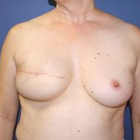
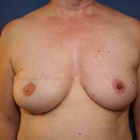
Front view
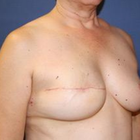
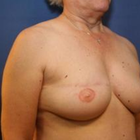
Half-side view
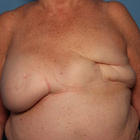

Front view
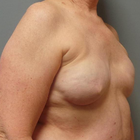
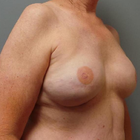
Half-side view
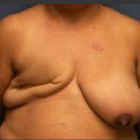
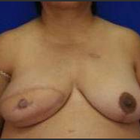
Front view
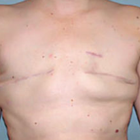

Front view
WHY US?
At Medijump, we're making medical easy. You can search, compare, discuss, and book your medical all in one place. We open the door to the best medical providers worldwide, saving you time and energy along the way, and it's all for FREE, no hidden fees, and no price markups guaranteed. So what are you waiting for?

Free

Best Price

Widest Selection

Risk-Free
What you need to know about Breast Reconstruction in Malaysia
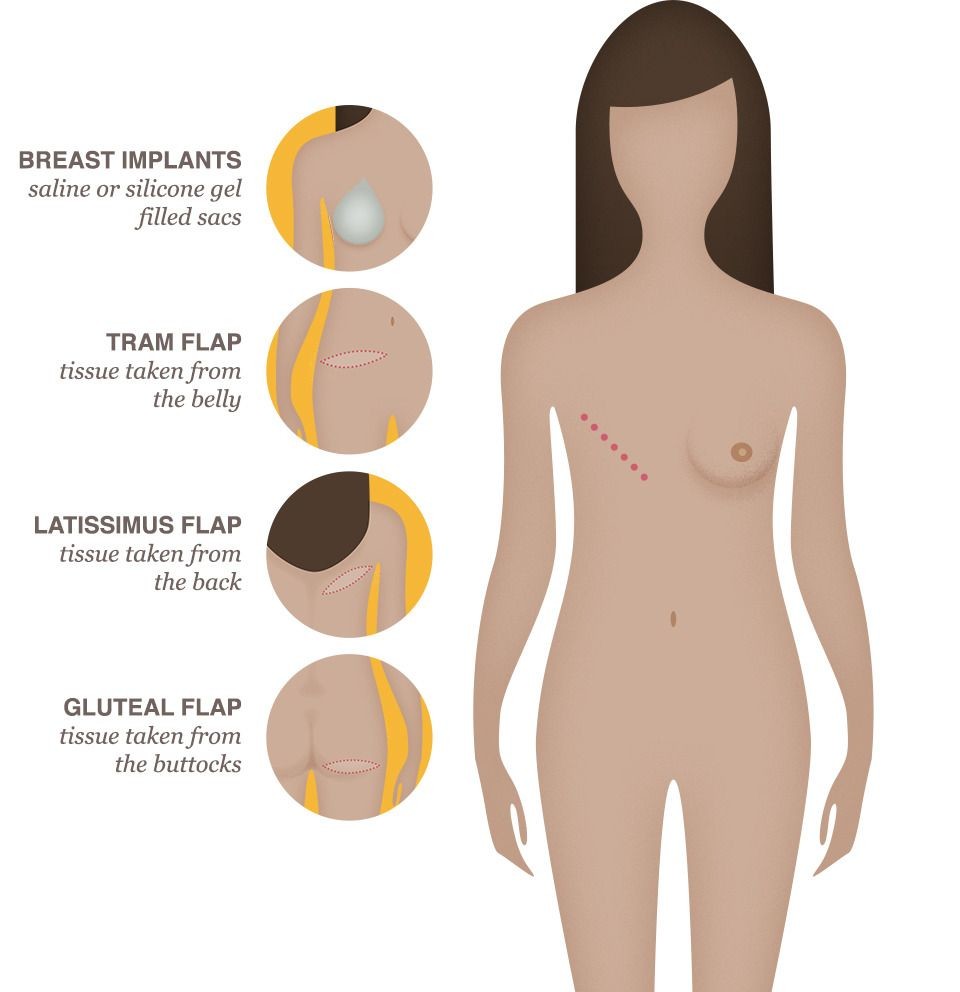
Breast reconstruction is a significant surgery undertaken to rejuvenate the physical form of a woman's chest after losing one or both breasts to cancer or another disease. In Malaysia, medical centres are well-equipped with top-tier talent in plastic surgery to facilitate this intricate procedure. Every woman's journey is different, and her treatment plan is personalized, considering her unique circumstances and needs.
It's heartening to know that breast cancer treatments like chemotherapy or radiation therapy aren't impeded by reconstruction. Moreover, this surgery doesn't spike the risk of cancer coming back. Undeniably, breast reconstruction is a major surgery with inherent risks, including chances of infection, complications with wound healing, and potential dilemmas related to implants.
What is the cost of Breast Reconstruction in Malaysia?
Undergoing surgery like Breast Reconstruction brings along a financial commitment. The expense varies extensively, depending on many factors like the complexity of the procedure, the medical professional performing the surgery, the hospital's facility, and the region, amongst others. Generally, the cost might range between $15,000 to $50,000, including multiple surgeries or intricate techniques within this estimate.
Thankfully, in many cases, insurance plans cover such surgical procedures, especially given mandates like the Women's Health and Cancer Rights Act of 1998 in the U.S. Still, out-of-pocket expenses associated with co-payment or deductibles can add up. It's recommended to navigate these aspects with your insurance provider and your chosen healthcare facility in Malaysia.
What does a Breast Reconstruction Procedure Involve?
Breast reconstruction generally happens in stages, starting with the most complex first, which may either occur at the same time as the mastectomy or later, based on the individual’s specific health conditions or treatment plan.
Two main techniques are employed in breast reconstruction. One is the use of an implant, saline, or silicone to recreate the breast shape. Two, autologous or flap reconstruction where tissue from the patient’s body like the abdomen or thigh is relocated to recreate the breast shape. The method selected is dependent on individual factors like the patient’s health, personal choice, cancer type, and stage.
After the primary surgery and post an adequate healing period, the surgeon performs a second procedure to recreate the nipple and areola. Later, to give it a natural look, the nipple-areola complex is tattooed. Remember that although it is a common procedure, complications might arise involving reaction to anaesthesia, bleeding, infection, poor healing or the need for further interventions.
How Long Should I Stay in Malaysia for a Breast Reconstruction Procedure?
Post-breast reconstruction surgery, patients typically stay in the hospital for two to five days. However, if the reconstruction was done immediately after the mastectomy, the stay could extend from three to six days.
Overall, a patient should expect to remain in Malaysia for approximately two weeks post-surgery. This allows enough time for necessary follow-ups and to address any complications, if they arise. As with any major surgical procedure, do not hasten the healing process.
What's the Recovery Time for Breast Reconstruction Procedures in Malaysia?
The recovery timeframe for breast reconstruction procedures in Malaysia varies from patient to patient. Generally, for implant-based procedures, patients may take about four to six weeks to recuperate before they return to normal routines. For more complex autologous techniques, particularly those using abdominal tissue, patients might require six to eight weeks for recovery.
Recovering patients need to temper their activities during this period. Avoid lifting heavy objects and defer strenuous exercise until your physician gives a clear signal. Medical assistance should be promptly sought if any discomforting symptoms like chronic pain, redness or swelling surface.
What's the Success Rate of Breast Reconstruction Procedures in Malaysia?
Medical success cannot just be measured in terms of complication-free postoperative progress or longevity of implants used in breast reconstruction. Patient satisfaction with their surgery, their psychological well-being following the operation, their perception of body image, and their quality of life post-surgery are equally important factors to consider. Studies indicate that between 85% to 90% of women who have undergone breast reconstruction are satisfied with the long-term results.
In Malaysia, dedicated hospitals and healthcare facilities strive to offer high-quality treatment, ensuring the best possible surgical outcomes using progressive technology and experienced professionals. Still, everyone's response to surgery varies, and outcomes depend on factors such as overall health, age, body type, and compliance with surgical advice.
Are there Alternatives to Breast Reconstruction Procedures in Malaysia?
Indeed, there are alternatives to breast reconstruction in Malaysia. The journey of every woman is unique and how she chooses to deal with the loss of a breast, or both, is a highly personal decision. Alternatives include:
- Breast Prostheses or Forms: They are silicone forms that imitate the appearance and feel of natural breast tissue. They come in diverse sizes, shapes and colours to closely match the woman's skin tone.
- Flat Closure: In this method, the surgeons sew up the chest wound smoothly, without constructing a breast mound. This option appeals to women who choose not to have more surgeries or body implants.
- Opting not to undergo reconstruction at all, also termed as "going flat: This method exhibits the woman's choice to live comfortably with her new body shape without artificial substitutes or further surgeries. It is a fully personal decision deserving respect and support.
Each of these options has pros and cons, and the choice depends on the woman’s personal preference, health status, lifestyle, and perception of her body. Regardless of the choice, it’s important to regularly monitor breast health and engage in practices that promote overall wellness.
What Should You Expect Before and After the Breast Reconstruction Procedure?
Before the surgery, comprehensive discussions with the surgeon will take place to understand treatment objectives, outcomes, and possible complications. Preoperative tests, lifestyle modifications, and nutritional advice may form a part of the preparatory process.
Postoperative care is equally important: discomfort, swelling, and bruising are normal and subside over time. Pain management strategies will be provided to help you manage discomfort effectively. Your surgeon will provide personalised guidance on caring for your surgical site, usage of medications, and physical activities.
What sort of Aftercare is Required for Breast Reconstruction Procedures in Malaysia?
The following points should be considered post-operation:
- Follow the instructions given by your doctor and take your medicines as and when prescribed.
- Consult a nutritionist for a diet plan. A healthy diet helps you recover faster.
- Do not wear a padded or underwire bra until allowed by your doctor.
- Use surgical bras in the early few days after the surgery.
- Avoid excessive unnecessary movement of your breasts.
- Do not lift heavy objects and children - it could stretch on your stitches.
- Change your bandage whenever it gets dirty. Germs can cause infection.
- Do not take a bath when the bandages are still intact. A wet bandage can also be the cause of infection.
- Abstain from sexual activity for at least 6 weeks.
- Take rest - give yourself time to recover.
How Do I Prevent Cancer from Recurring?
Preventing cancer recurrence largely revolves around a balanced, healthy lifestyle coupled with regular medical check-ups. Regular exercise, maintaining a healthy weight, and eating nutritiously can contribute to cancer prevention. Smoke cessation and limiting exposure to secondhand smoke are crucial for both prevention and postoperative recovery.
Regular breast self-examinations, as well as mammograms and follow-up visits, are critical for early detection of any recurrence. Stress management techniques like yoga, meditation, and spending time in nature can also play an essential role in overall health.
Your medical team in Malaysia is there to support you, offering advice tailored to your individual health status and medical history. Remember, proactive health checks are key to maintaining overall health and preventing the recurrence of diseases like cancer.
What is the ideal time to have Breast Reconstruction surgery after a Mastectomy in Malaysia?
The decision regarding when to have Breast Reconstruction following a Mastectomy in Malaysia is largely based on the individual's health status, treatment plan, personal preferences, and discussions with the oncology team. Breast reconstruction can be done at the time of mastectomy (immediate reconstruction) or at a later date (delayed reconstruction). Immediate reconstruction might offer psychological benefits and less overall surgery since both procedures are done together. Yet, if additional treatments such as radiation therapy are required post-mastectomy, opting for delayed reconstruction could be advisable to avoid risks posed by radiation to the new construct.
Remember that deciding on the timing of breast reconstruction is a personal choice and should be made in consultation with your healthcare providers. They can provide specific guidance based on your health condition and treatment plan.
How Will Breast Reconstruction in Malaysia Impact My Routine Mammograms and Breast Cancer Detection?
Breast reconstruction surgery may impact the way routine breast cancer screenings are conducted. After a mastectomy with or without reconstruction, women usually don't need routine screening mammograms on the treated side since all breast tissue has been removed. However, they would need routine mammograms for the untreated breasts.
If you've had reconstruction using your own body tissue, your surgeon or oncologist will guide you on whether or not you'll require mammograms on the reconstructed breast. Remember, mammograms can still be performed on reconstructed breasts, and self-breast exams should be a regular part of your health routine.
Whilst the information presented here has been accurately sourced and verified by a medical professional for its accuracy, it is still advised to consult with your doctor before pursuing a medical treatment at one of the listed medical providers
No Time?
Tell us what you're looking for and we'll reachout to the top clinics all at once
Enquire Now

Popular Procedures in Malaysia
Prices Start From $497

Prices Start From $208

Prices Start From $834

Prices Start From $500

Prices Start From $93

Prices Start From $85

Recommended Medical Centers in Malaysia for Breast Reconstruction

- Interpreter services
- Translation service
- Religious facilities
- Medical records transfer
- Medical travel insurance
- Health insurance coordination
- TV in the room
- Safe in the room
- Phone in the room
- Private rooms for patients available

- Interpreter services
- Translation service
- Religious facilities
- Medical records transfer
- Medical travel insurance
- Health insurance coordination
- TV in the room
- Safe in the room
- Phone in the room
- Private rooms for patients available

- Interpreter services
- Translation service
- Religious facilities
- Medical records transfer
- Medical travel insurance
- Health insurance coordination
- TV in the room
- Safe in the room
- Phone in the room
- Private rooms for patients available

- Interpreter services
- Translation service
- Religious facilities
- Medical records transfer
- Medical travel insurance
- Health insurance coordination
- TV in the room
- Safe in the room
- Phone in the room
- Private rooms for patients available

- Interpreter services
- Translation service
- Religious facilities
- Medical records transfer
- Medical travel insurance
- Health insurance coordination
- TV in the room
- Safe in the room
- Phone in the room
- Private rooms for patients available

- Interpreter services
- Translation service
- Religious facilities
- Medical records transfer
- Medical travel insurance
- Health insurance coordination
- TV in the room
- Safe in the room
- Phone in the room
- Private rooms for patients available

- Interpreter services
- Translation service
- Religious facilities
- Medical records transfer
- Medical travel insurance
- Health insurance coordination
- TV in the room
- Safe in the room
- Phone in the room
- Private rooms for patients available

- Interpreter services
- Translation service
- Religious facilities
- Medical records transfer
- Medical travel insurance
- Health insurance coordination
- TV in the room
- Safe in the room
- Phone in the room
- Private rooms for patients available

- Interpreter services
- Translation service
- Religious facilities
- Medical records transfer
- Medical travel insurance
- Health insurance coordination
- TV in the room
- Safe in the room
- Phone in the room
- Private rooms for patients available

- Interpreter services
- Translation service
- Religious facilities
- Medical records transfer
- Medical travel insurance
- Health insurance coordination
- TV in the room
- Safe in the room
- Phone in the room
- Private rooms for patients available
Breast Reconstruction in and around Malaysia
About Malaysia
Malaysia is a rich culturally-oriented tourist destination and has a beautiful blend of modernization with a relaxed lifestyle. The population of the country is 32 Million people and Malaysia’s economy ranks in the fourth position in terms of size in Southeast Asia, The electronics, automotive, and construction industries are the biggest industries in Malaysia. The capital is Kuala Lumpur and It is the country’s largest urban area and is the cultural, commercial, and transportation center.
Presently, Malaysia stands as a renowned destination for its exemplary healthcare facilities, offering these high-quality services at notably affordable costs when juxtaposed against other globally recognized medical nations. As per predictions from the Ministry of Finance, the influx of medical tourists is expected to surge beyond 2,000,000 million by 2020. This forecasted growth can be largely attributed to the exemption of taxes imposed on medical bills.
The cities that top the list of medical travel include Kuala Lumpur, Penang, Selangor, Sarawak, and Melaka. Statistics reveal that among the 1.2 million patients who have visited Malaysia for medical care in 2017, 600,000 alone were from Indonesia. The most-sought-after medical procedures are cosmetic surgery, Brazilian butt-lift, and dental surgery. Malaysia is a favorite destination among medical tourists globally for the following reasons.
- The Country possesses a plethora of world-class hospitals that have high-tech medical equipment.
- All treatment plans match very high ethical medical standards.
- The doctors and paramedical staff are well-qualified.
- All procedures will cost you 50% less than other well known medical countries.
- English is a major language and there is good two-way communication between the doctors/medical staff and the patients.
- After an elective surgical operation, many patients will stay on in Malaysia to holiday and recuperate.
Some of the top-rated five-star medical tourism hospitals within the country include Columbia Asia Extended Care Hospital situated in Selangor, Sunway Velocity Medical Centre located in Kuala Lumpur, and Sunway Medical Centre based in Selangor.
Popular parts of Malaysia
Undoubtedly, Malaysia's appeal is immediately evident. The variety of experiences it offers, from bustling cities to idyllic landscapes, entrances visitors. Malaysia's multiculturalism, expressed through unique customs and diverse cuisines, only enhances its charm. This draws tourists from all corners of the globe, leaving them yearning for more. Succinctly, the splendor and diversity of Malaysia make it hard to resist repeated visits.
- Kuala Lumpur has a mix of Malay, Indian, and Chinese influence which gives you a great selection of culinary delights to explore in this city. Interesting sights such as the Petronas Towers which is one of the tallest twin towers in the world. the Perdana Lake Gardens and the Menara KL Tower provide plenty of enjoyable distractions.
- Penang is an island on the west coast and the colonial city of Georgetown was made a UNESCO World Heritage Site and you can enjoy the museums, seaside fort, historic buildings. Penang is considered one of the best places in Southeast Asia to sample delicious street food of all types.
The must-visit cities in Malaysia renowned for their world-class appeal include Malacca, Langkawi, Kuching, Spaden, Johor Bahru, and Taiping.
Weather and Climate in Malaysia
Malaysia is a place that's warm all year round, as being in the tropical region. But since it's close to the ocean, the air can get pretty moist. Still, it's re-assuring to note that it doesn't get too hot, with temperatures usually staying between a pleasant 20°C and 30°C all throughout the year. Those who prefer cooler weather can visit the highlands in Malaysia, where it's generally chillier.
When planning a trip it's important to take into account the best times to visit different parts of the country. If you're eyeing the east coast, try to schedule your visit between March and September; this period is relatively drier than other months. On the other hand, the west coast is better visited from November to August. It's best to avoid the heavy rains which usually occur from September to October. With this information, you can plan to get the best out of your trip to Malaysia.
Getting around in Malaysia
The Country has a well-developed transport network and efficient rail links which makes all travel around the country easy.
It is advisable to book domestic transport well in advance during the main festivals, such as Chinese New Year, Hari Raya Pusa and Hari Raya Haji. Domestic flights and domestic express bus services are often sold out weeks before these festivals. All the major cities in Malaysia have an airport and most budget airlines operate into the country.
In the larger cities of Malaysia, you'll find that transportation is convenient with many kinds of vehicles to choose from. Specifically in Kuala Lumpur, the capital city, there's a broad range of public transportation options to get around. You can hop on buses for an affordable ride or opt for minibusses, locally known as "bas-mini" to navigate through narrower streets.
Furthermore, taxis are easily accessible in Kuala Lumpur, providing a convenient alternative when you prefer more comfort or need to reach a specific destination quickly. If you would like to experience something traditional and fun, pedicabs or "trishaws" as they are commonly known, are present in some parts of the city offering you a unique ride.
Additionally, Kuala Lumpur also boasts a well-connected train network, including rapid transit and commuter rail services, facilitating quick and efficient travel across the city. It's safe to say that in Kuala Lumpur, moving around is smooth and easy, thanks to these diverse means of transportation.
In Malaysian towns and cities, various modes of transport are used, including ferry services. In cities, the rail network is a good way to get around, especially the KL Monorail and transit trains.
Tourist Visas in Malaysia
The residents of the following countries holding a valid passport are the ones required to apply for a Malaysian tourist visa. China, India, Sri Lanka, Nepal, Myanmar, Bangladesh, Pakistan, Bhutan, Serbia, and Montenegro
All other nationalities will not need a visa to visit Malaysia. You will normally be given permission to stay for 3 months on arrival. Visas for longer stays or for non-tourist purposes must be obtained from the nearest Malaysian diplomatic mission before you travel.
The Malaysian authorities are running a vigorous campaign against illegal immigration. Don’t overstay your visa, or violate the terms of entry. Even if you overstay for just a few days, you can be fined, detained, deported, and blacklisted. Flight costs will be the responsibility of the individual.
Additional Information
- Local currency: Ringgit, denoted as RM, is the national Malaysian Currency. Printed in various colors, size, and physical appearance, the Bank Negara Malaysia and the National Bank of Malaysia control the issuing of currency. Malaysia follows the Chinese Model where it has cut itself away from comparing it to US dollars. The Malaysian currency is as such not traded internationally.
- Money and Payments: world-class restaurants and retail stores accept all forms of Credit cards. In case you are not holding the requisite quantity of local currency with you, you can exchange them at exchange bureaus. You can even take out cash from the ATMs.
- Local language: The official language is Malay and English is also widely spoken, the state has a cosmopolitan population, languages such as Arabic, Hindi, Tamil, are also spoken.
- Public holidays: The local population celebrates the Gregorian New year as well as the Chinese New Year. Since a large part of the population is Indian, Malaysia also celebrates some of the traditional Indian festivals such as Pongal, Diwali, and Tamil New Year.
Popular Searches
- Plastic Surgery in Thailand
- Dental Implants in Thailand
- Hair Transplant in Thailand
- Breast Augmentation Thailand
- Gastric Sleeve in Thailand
- Gender Reassignment Surgery in Thailand
- Laser Hair Removal in Bangkok
- Botox in Bangkok
- Dermatology in Bangkok
- Breast Augmentation in Bangkok
- Coolsculpting in Bangkok
- Veneers in Turkey
- Hair Transplant in Turkey
- Rhinoplasty in Turkey
- Stem Cell Therapy in Mexico
- Rhinoplasty in Mexico
- Liposuction in Mexico
- Coolsculpting in Tijuana
- Rhinoplasty in Korea
- Scar Removal in Korea
- Gastric Sleeve in Turkey
- Bone Marrow Transplant in India
- Invisalign in Malaysia
- Plastic Surgery in the Dominican Republic
- Tummy Tuck in the Dominican Republic
- Plastic and Cosmetic Surgery in Poland
- Rhinoplasty in Poland
- Hair Implant in Poland
- Dental Implants in Poland
- IVF in Turkey





